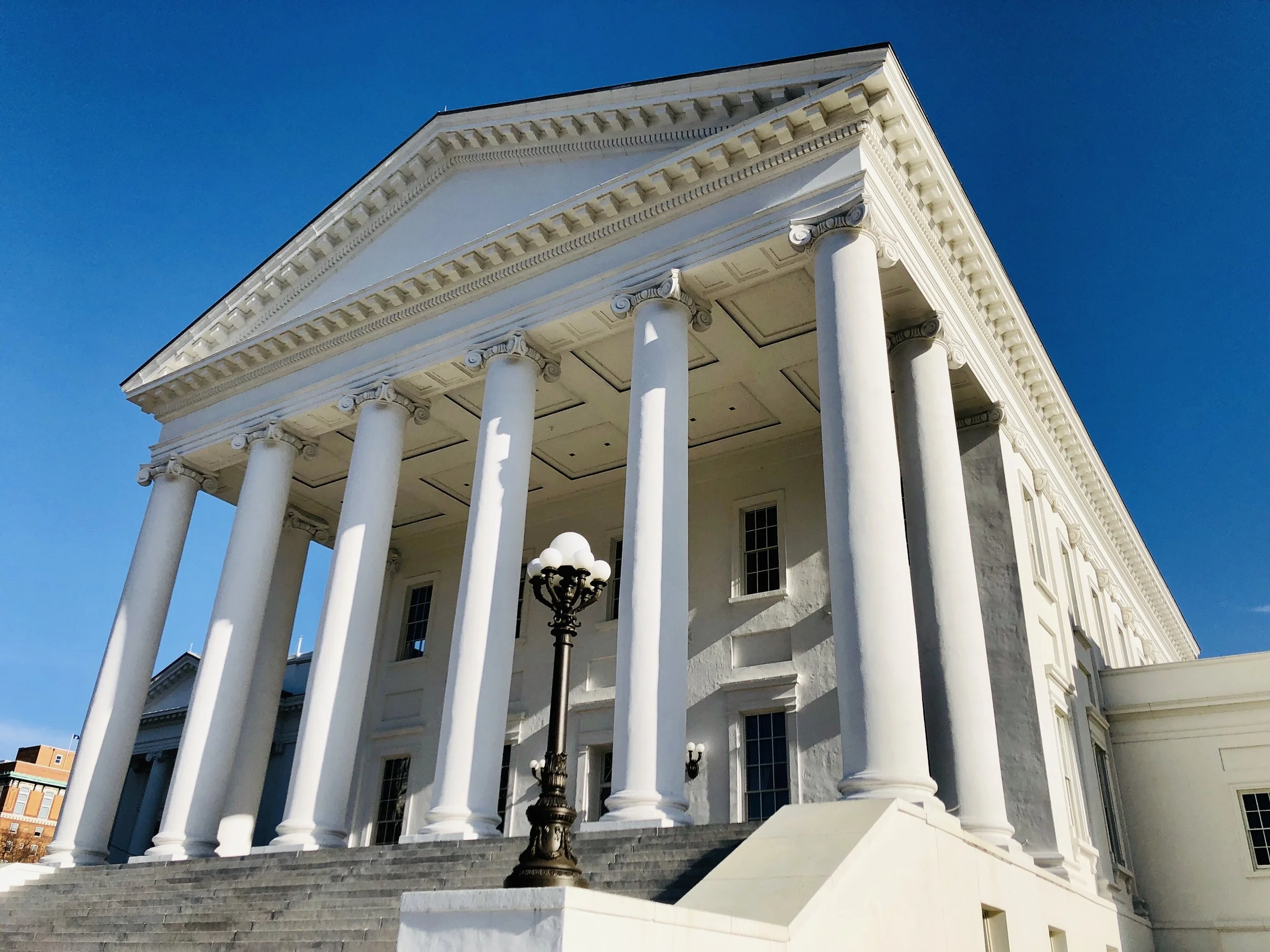As ‘23 Virginia lawmaking session ends, here’s how emergency medicine fared
With few exceptions, it was a banner year for emergency medicine in the 2023 Virginia General Assembly.
For Virginia emergency physicians who may not follow the political scene as closely as some of VACEP’s leaders, the legacy of this year’s session will be very visible, very soon. VACEP pushed for, introduced, and succeeded in passing legislation that will require medical facilities to staff trained security in EDs 24/7/365. This was a bill, considered the first-of-its-kind in the nation, that VACEP President Todd Parker, MD, FACEP called a “moonshot.” But with a combination of advocacy, negotiation, and storytelling, VACEP succeeded in landing the legislation with bipartisan, unanimous support.
This workplace violence-curbing legislation is headed to the Governor's desk for signing into law.
Beyond ED security, VACERP helped strike down scope of practice bills, including one that would have removed training requirements for NPs to practice independently. We are pleased to report that our paramedic colleagues will likely have their practice capabilities expanded to administer controlled substances inside a medical facility. We have helped further refine two processes within the laws around Temporary Detention Orders. And Virginia lawmakers agreed with the House of Medicine that physicians should be able to seek help for mental health conditions without being punished.
Virginia emergency physicians Lawrence Leslie, Todd Parker (VACEP President), Benjamin Blackwood, Jessica Cartoski, and Mary McCarthy met with Sen. John Cosgrove (R-Chesapeake) during EM Advocacy Day on January 25.
With that, here’s the results of VACEP’s ‘23 priority legislation.
Security in the ed
Considered the first of its kind in the country, Senate Bill 827 will require hospitals to have either off-duty police officers or security personnel in the ED 24/7/365. They will have training in conflict resolution and de-escalation, and the ability to physically restrain unruly individuals.
The bill, introduced by VACEP with sponsorship by Sen. Barbara Favola, passed the 40-member Senate and 100-member House of Delegates unanimously. The Virginia Nurses Association and Medical Society of Virginia – a massive organization representing every medical specialty — joined VACEP as supporters.
You can get the full details of the bill here, but here are the highlights:
Once signed, the bill becomes law on July 1, 2023.
Implementation will take time and occur over the following year. Before any visible changes occur, hospitals must first undergo a security risk assessment.
The assessment will outline training requirements for security personnel for the potential use of — and response to — weapons, defensive tactics, de-escalation techniques, appropriate physical restraint and seclusion techniques, crisis intervention, and trauma-informed approaches.
There is a waiver option, which must be approved by Virginia’s health commissioner, for medical facilities to staff security at certain times based on the security risk assessment plan.
Scope of Practice
Most every bill dealing with scope of practice for healthcare providers have been defeated for the year. You can read more about these bills on our Issues page. Of most importance, we fought yet again this year and successfully kept training to five years/9,000 hours of supervised training before a Nurse Practitioner can apply for independent practice.
The one bill we supported, House Bill 1447, gives paramedics engaged at a medical care facility the ability to administer controlled substances. This bill passed and is with the Governor for his signature.
Medical TDOs
Two bills to improve Temporary Detention Order (TDO) processes passed.
Emergency physicians will soon be able to get a medical TDO for intoxicated patients by allowing them to call magistrates without calling courts first. This is a bill we worked on collaboratively with the Virginia Sheriff’s Association. The bills are Senate Bill 1302 (which incorporates Senate Bill 808) and the identical House Bill 1792.
Lawmakers greenlit a new mechanism to release a patient under a TDO when they are in the ER and waiting for a bed, but, in waiting, no longer meet the criteria of being a danger to themselves or others. House Bill 1976 and Senate Bill 1299 passed unanimously.
Protecting physician mental health
Lawmakers stood up for physician mental health by voting to remove questions on Virginia’s licensure, certification, and registration applications for doctors. With unanimous support, House Bill 1573 and Senate Bill 970 remove these questions from the applications and will help physicians get treatment for mental health conditions:
Do you have any reason to believe that you would pose a risk to the safety or well-being of your patients or clients?
Are you able to perform the essential functions of a practitioner in your area of practice with or without reasonable accommodation?
A budget update
Unfortunately, albeit not unexpectedly, the amendments to remove the harmful “downcoding” provision for Medicaid patients were not accepted (we’ve written extensively on the issue on a standalone Downcoding page). In addition, there was no “across the board” physician Medicaid increase. Instead, the Senate included a 5% increase for only family physicians, pediatricians and psychiatrists, but with no language requiring them to take new patients.
The General Assembly adjourned (“Sine Die”) on February 25.




